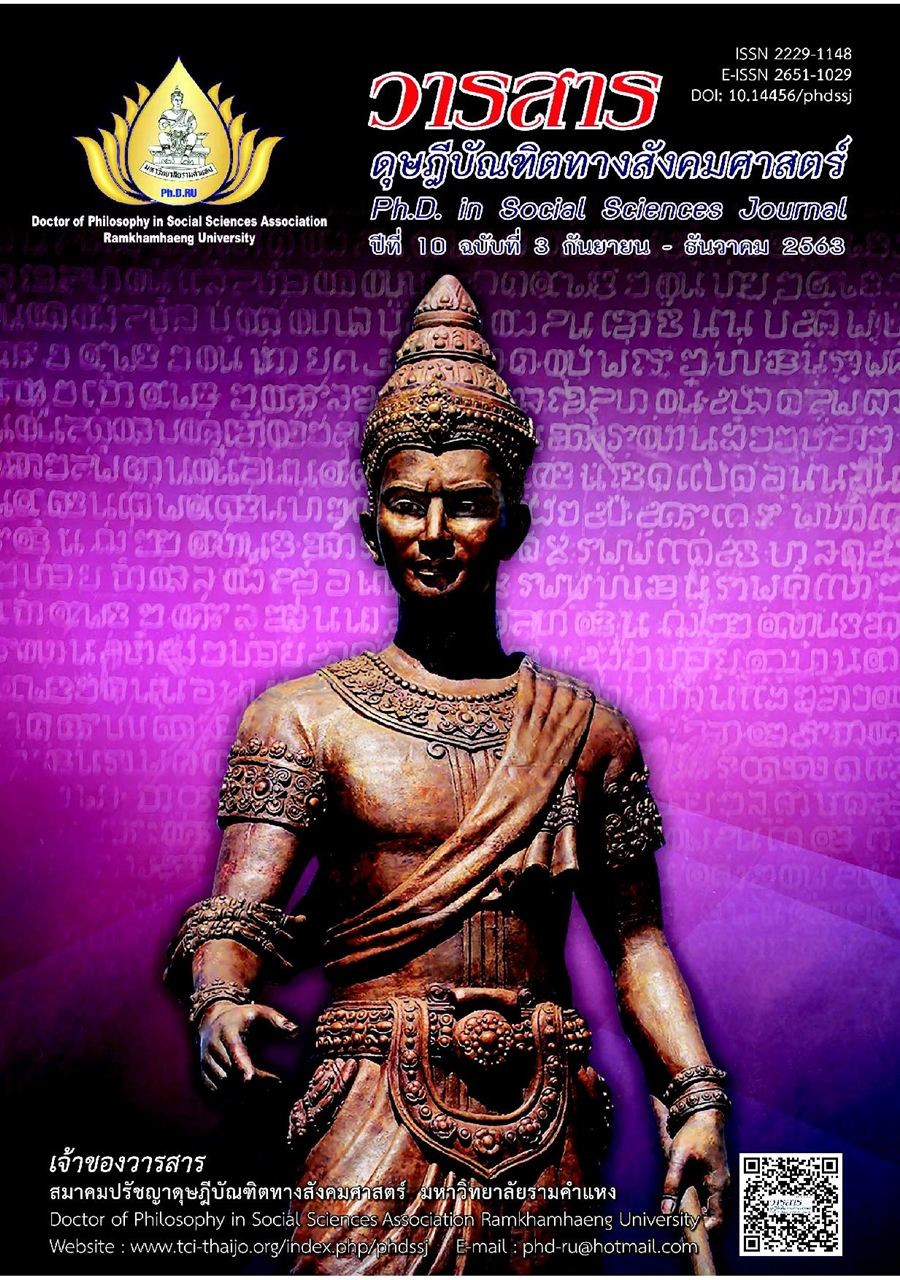Land Tenure Restriction Under the Land Code: A Study of the Scope and Legal Measures Appropriate to Thailand
Main Article Content
Abstract
The objectives of this research article were to examine (1) land tenure under the Land Code of Thailand, (2) impacts of land ownership restriction and land tenure, and (3) guidelines on legal measures to restrict the right to own land in Thailand. The researchers used the qualitative research methodology by using 2 methods of data collection, namely document research, in-depth interviews of 80 people, and analyzed the data by using content analysis.
The research results show that the land tenure problem in Thailand is based on the current tenure of land under the Land Code. As a result, Thai natural persons and juristic persons have the right to own land in an unlimited number of capacities and without any legal measures to enforce the utilization of the land held in any way. The above problems therefore affect politics, society and economy because inequality causes disparities in land ownership. Therefore, Thailand needs to take legal and tax measures to restrict land ownership, and also the use of other legal measures to limit the right to own land to reduce the inequality in land ownership.
Article Details
Academic articles, research articles, and book reviews in the Ph.D. in Social Sciences Journal are author’s opinions, and not the publisher’s, and is not the responsibility of the Ph.D. in Social Sciences Journal Philosophy Association, Ramkhamhaeng University. (In the case that research is done on human, the researcher has to be trained in Ethics for Doing Research on Human Training and has to produce the evidence of the training).
References
Bunpram, W. (2007). The Replacement of land right Act B.E. 2467 by the Announcement of Revolutionary Party No 49 (B.E. 2502) and its effect on land occupation in Thailand. Master’s Thesis of Art (Political Economy), Chulalongkorn University. [In Thai]
Department of Lands, Planning Division, Data and Statistics Division. (2017). Right documents issued by the Department of Lands nationwide. Retrieved from http://www.dol.go.th/Pages/internet.aspx [In Thai]
Phongpaichit, P. (2013). Towards a more equitable Thailand: A study of wealth, power and reform. The Thailand Research Fund, Office of the Higher Education Commission and Chulalongkorn University. [In Thai]
National Reform Council. (2015). Reform Agenda 11: Land Reform and Land Management. The Secretariat of the House of Representatives. [In Thai]
Publication Department and Sriarunothai, N. (2019). Where is the farmer? in land management of the Thai state. Retrieved from https://waymagazine.org/thai-land-policy/ [In Thai]
Rinchakorn, P. (2017). Important economic concepts of the Greek Philosopher: Plato in mainstream economics. Retrieved from https://www.gotoknow.org/posts/467571 [In Thai]
Samranjit, P. (2011). Injustice in access to land resources by Pongtip Samranjit, exchanged by Anan Kanjanaphan. Retrieved from https://archive.recoftc.org/node/43782 [In Thai]
Suchiwa, B. (2013). Explanation of property law (15th ed.). Krung Siam. [In Thai]
Uwanno, B. (1995). Public law. Nititham. [In Thai]


